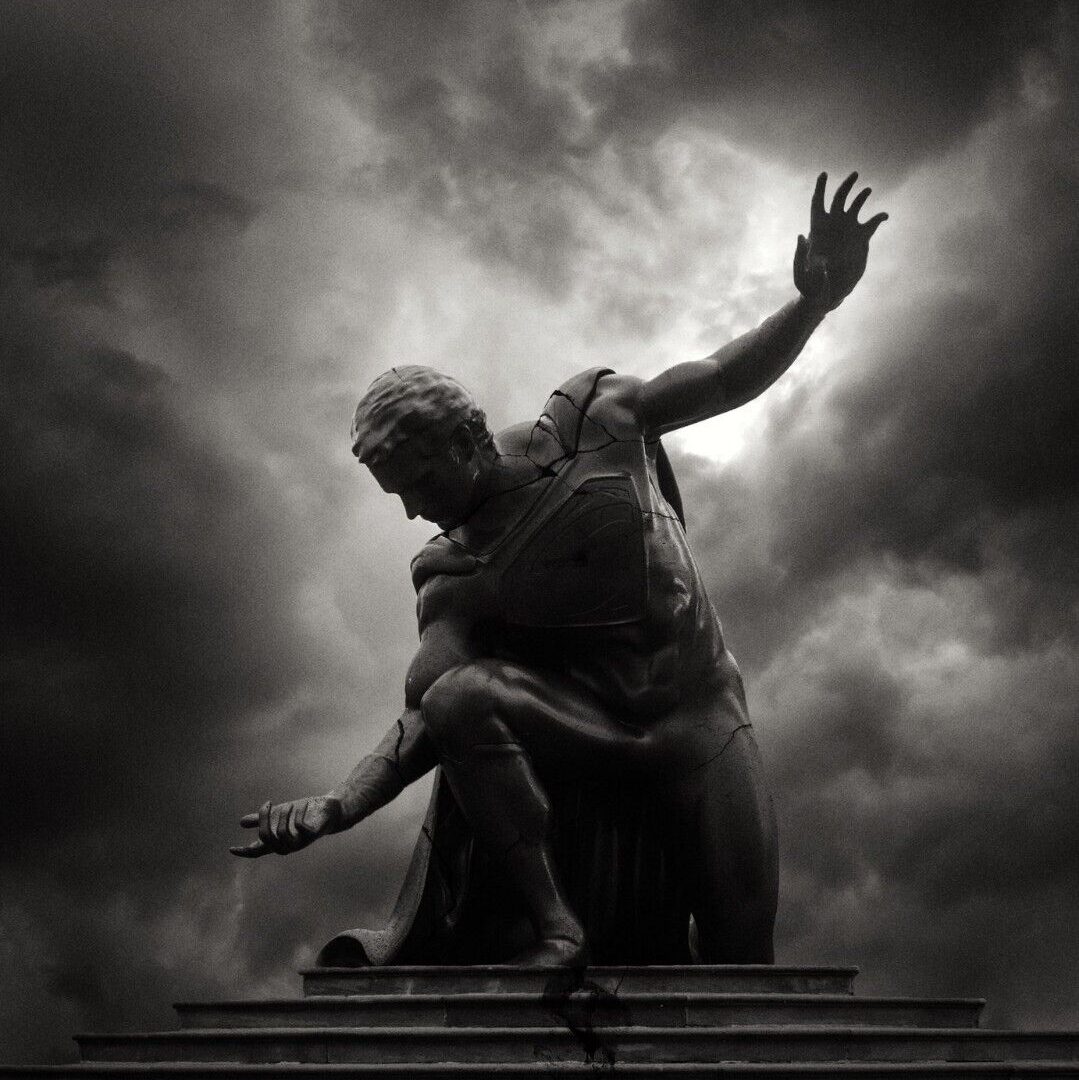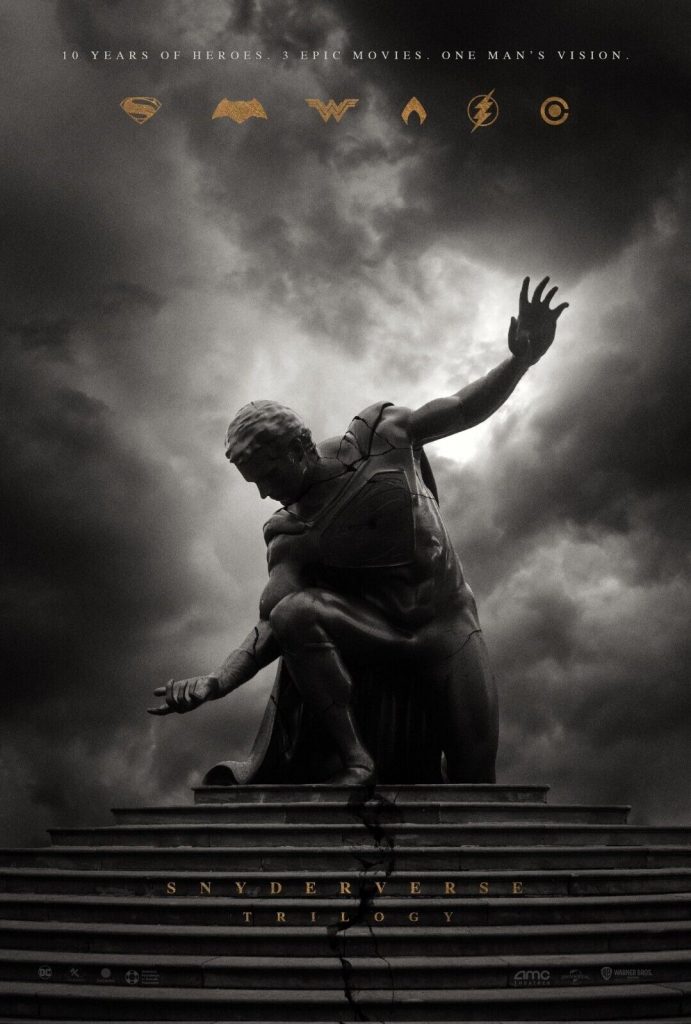A Cultured Retrospective: The SnyderVerse
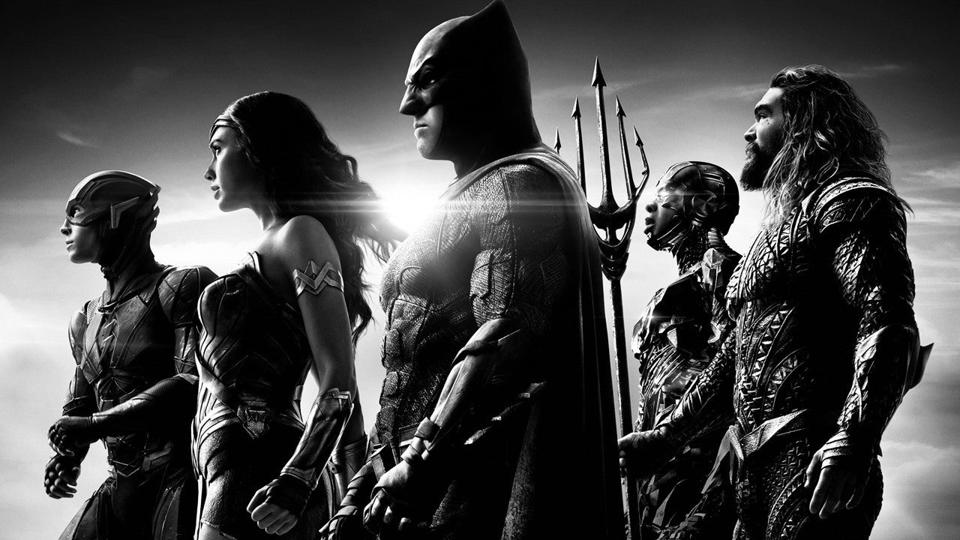
“There was a time above .. a time before .. there were perfect things .. diamond absolutes. But things fall .. things on earth. And what falls .. is fallen.“
When Christopher Nolan‘s Dark Knight saga came to its conclusion in 2012 with The Dark Knight Rises, little did we know the epic journey we as fans were about to embark on with Warner Bros. and DC films. At the time, when producer (and frequent collaborator) David Goyer and Nolan were discussing stories for TDKR, Goyer shared his idea regarding how to present Superman in a modern context. Impressed with Goyer’s concept, Nolan pitched the idea to the WB, who then promptly hired Nolan to produce the film with Goyer to pen the script. Warner Bros. announced that this new Superman film would serve as a “clean reboot” from Bryan Singer‘s Superman Returns starring Brandon Routh. A number of directors, including: Darren Aronofsky, Duncan Jones, Ben Affleck, Tony Scott, Matt Reeves and Jonathan Liebesman were considered to direct the movie. Eventually, known for his visual artistry in films like Watchmen and 300, director Zack Snyder was chosen for the film.
And thus the SnyderVerse was born.
I. The Rise Of The SnyderVerse
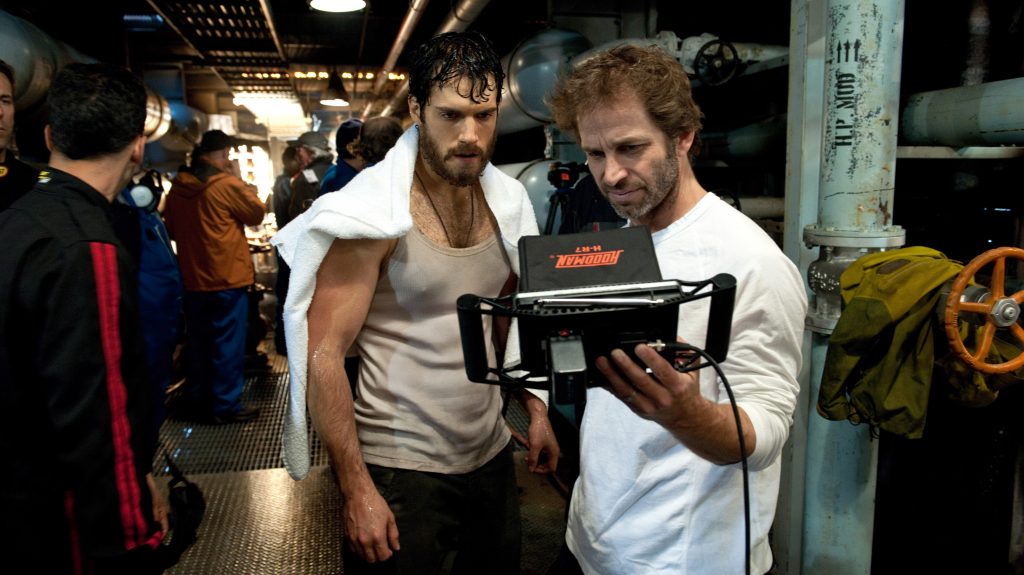
Shorty after Snyder was announced as the director, casting was underway to find the next Superman. Actors such as Tyler Hoechlin (who would later play the character in the Arrowverse and Superman & Lois), Matthew Goode, Armie Hammer, Jamie Dornan, Joe Manganiello (who was subsequently cast as Deathstroke) were all considered for the role. The role went to British actor Henry Cavill, who previously screen tested in the shelved Superman: Flyby, and was also considered for the role in Superman Returns, but ultimately lost the role to Routh.
“There’s a very real story behind the Superman character. He’s alone and there’s no one like him … That must be incredibly scary and lonely, not to know who you are or what you are, and trying to find out what makes sense. Where’s your baseline? What do you draw from? Where do you draw a limit with the power you have? In itself, that’s an incredible weakness.“
Henry Cavill on the character of Superman shortly after being casted. Via Yahoo Entertainment.
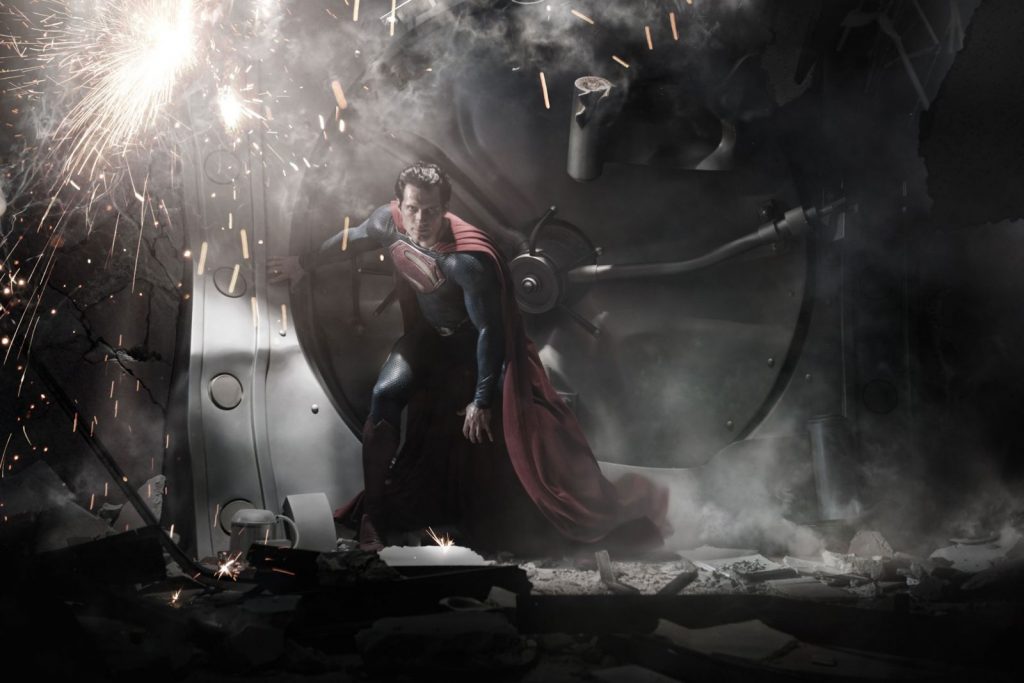
With a reveal of the character’s redesigned suit, which was darker toned and removed the famed red trunks, it was clear from the start that Snyder’s vision for the character was going to vastly different than what previous iterations brought to the character.
Despite Man of Steel grossing $668 million worldwide, becoming the ninth-highest-grossing film of 2013, it was met with fairly divisive reactions from both the fans and critics. Critics felt the film’s visually-appealing action sequences were not enough to overcome its descent into “generic blockbuster territory”. Fans felt that Snyder’s approach, one of dark, brooding action sequences, highlighting an attempt to ground the fantastical world of comic book heroes in reality, didn’t fit the idea of Superman. It was clear that Snyder’s vision for the DCEU (yes, still the unofficial name of this universe) was going to be a reimagined, deconstructed portrayal of the superheroes we know and love which was a stark difference when compared to the approach DC’s main competitor, Marvel Studios, had adopted for their own cinematic universe.
II. The Dawn of The SnyderVerse
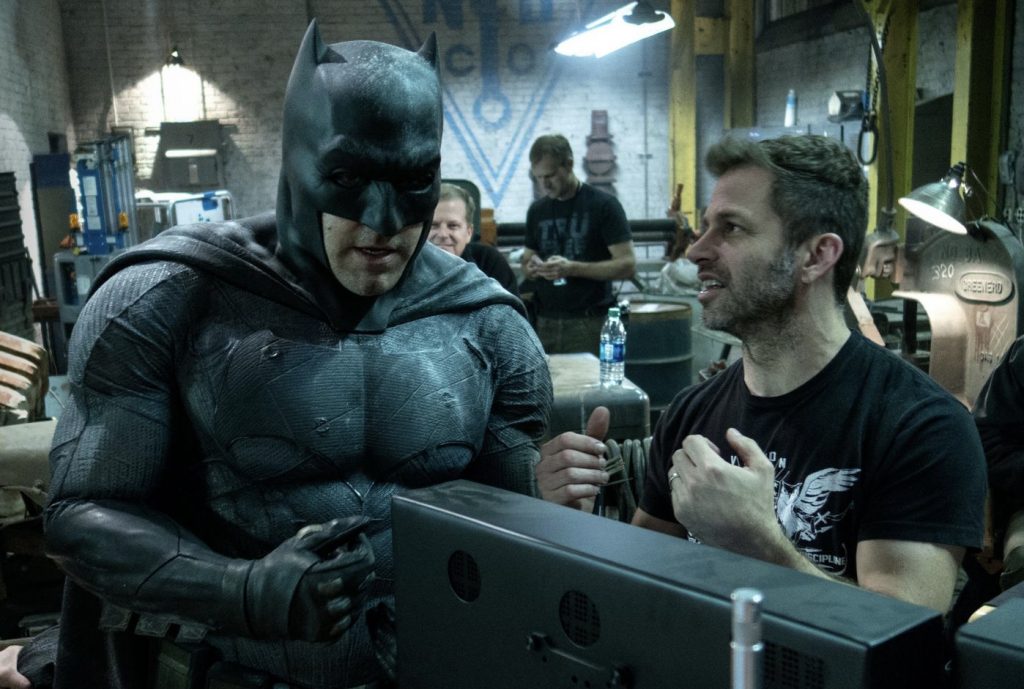
WB began planning for a cinematic universe featuring other DC Comics characters following the release of Man of Steel. In June 2013, Goyer was hired to write the film’s sequel, along with the script for a future Justice League film. About a month later, Snyder revealed at San Diego Comic-Con that Superman and Batman would appear in the sequel to Man of Steel, Batman v Superman: Dawn of Justice. Snyder eventually casted Ben Affleck as the film’s other titular character, a more jaded and grizzled version of Batman/Bruce Wayne than we’ve seen in previous iterations. Snyder also added Gal Gadot (Diana Prince/Wonder Woman), Jason Momoa (Arthur Curry/Aquaman), Ezra Miller (Barry Allen/The Flash) and Ray Fisher (Victor Stone/Cyborg) to round out his vision of the first cinematic Justice League.
Instead of shying away from the elements that had made MOS “controversial”, Snyder doubled down. Dawn of Justice was also a financial success, grossing over $873 million worldwide. However, the film was again highly divisive amongst the fans and critics, given that it received a number of complaints about its dark tone, convoluted plot, and seemingly disjointed storyline. An extended version of the film was released, the Ultimate Edition, which ultimately fleshed out subplots, added some much needed character beats, and also changed the rating of the movie to an “R” from “PG-13” as more brutal story beats were brought to light.
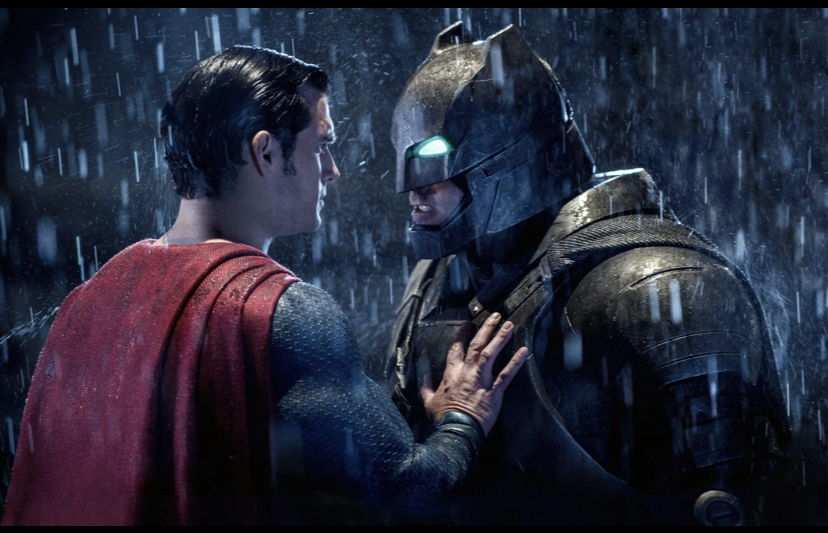
Panicked at the initial reception to the theatrical version of DOJ, WB went into immediate damage control mode. Later that same year, WB released a heavily reshot and reedited Suicide Squad film that was not what writer/director David Ayer had intended to bring to theaters.
Gal Gadot reprised her role of Diana Prince in director Patty Jenkins’ Wonder Woman which garnered universal acclaim across the board which, coupled with the record-breaking success in the box-office, seemed like it was the break the DCEU needed. With WW released, the road to Justice League later that year, a film that would change the industry and fanbase forever, was officially commencing.
III. Justice League: The Fall of The SnyderVerse
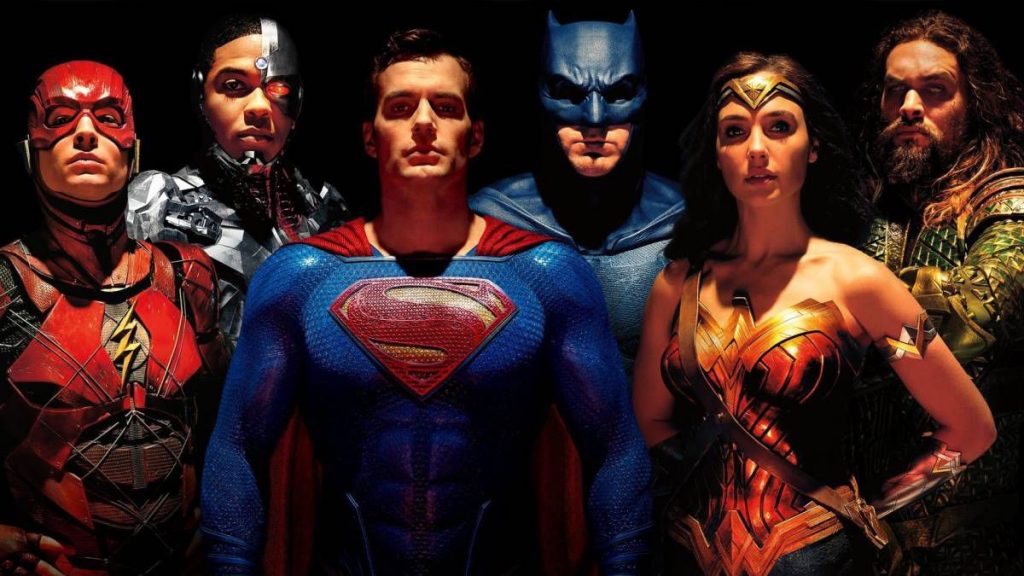
Principal photography for Justice League began in April 2016 and wrapped later that December. Justice League’s script underwent major changes before and during production throughout 2016 and 2017, due to WB studio heads reportedly demanding Snyder and writer Chris Terrio to make it “funnier”. Unfortunately, in May of 2017, the SnyderVerse hit a significant roadblock when Snyder stepped away from Justice League during post-production due to a personal tragedy involving the untimely death of his 20-year-old daughter, Autumn.
Former Avengers director, Joss Whedon, was brought in by WB to complete the film, which led to him overseeing controversial reshoots and other changes that incorporated a brighter tone and more humor while reducing the runtime to 2 hours in accordance with a mandate from WB.
The final product was far from what Snyder had originally envisioned, leading to a mostly negative reception from the fanbase. The theatrical release of Justice League was the beginning of the end for Snyder’s vision for the DCEU. The film was a critical and financial disappointment, earning over $657 million worldwide and marking the lowest-grossing movie in the franchise. The fanbase were left wondering what could have been if Snyder had been able to see his vision through. Despite the disappointment of Justice League, the story of the SnyderVerse would not reach its conclusion, as the crusade to see Snyder’s original version arose on the premiere night of the film.
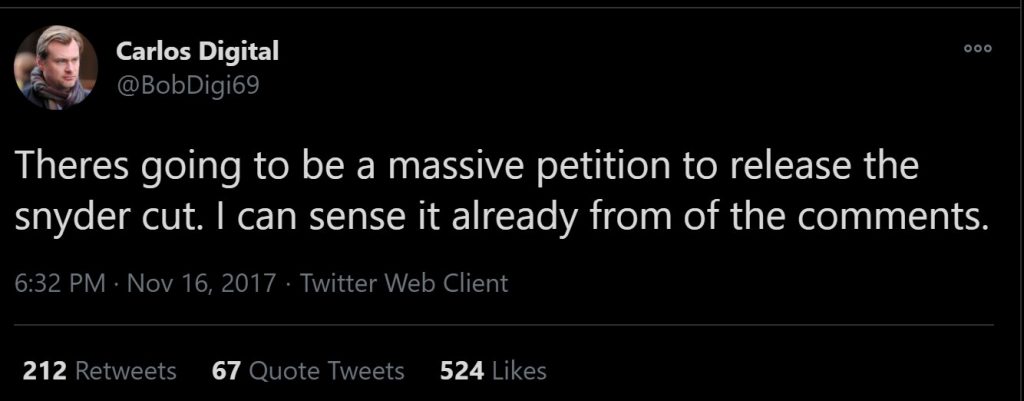
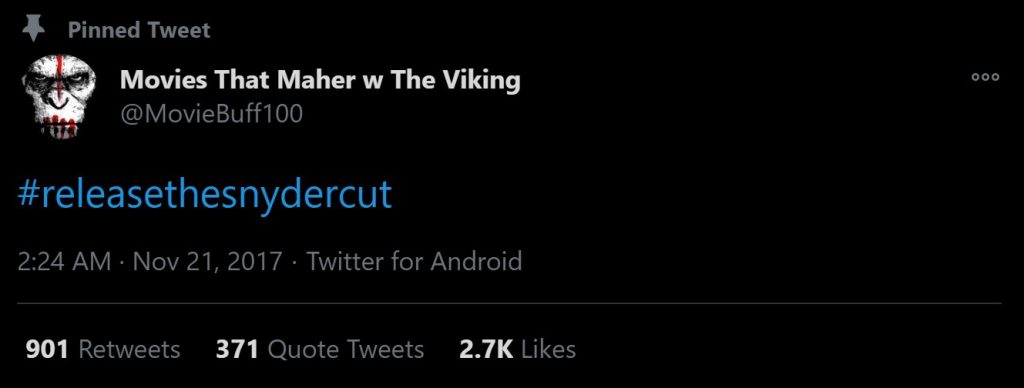
IV. The Resurrection of the SnyderVerse: The Snyder Cut
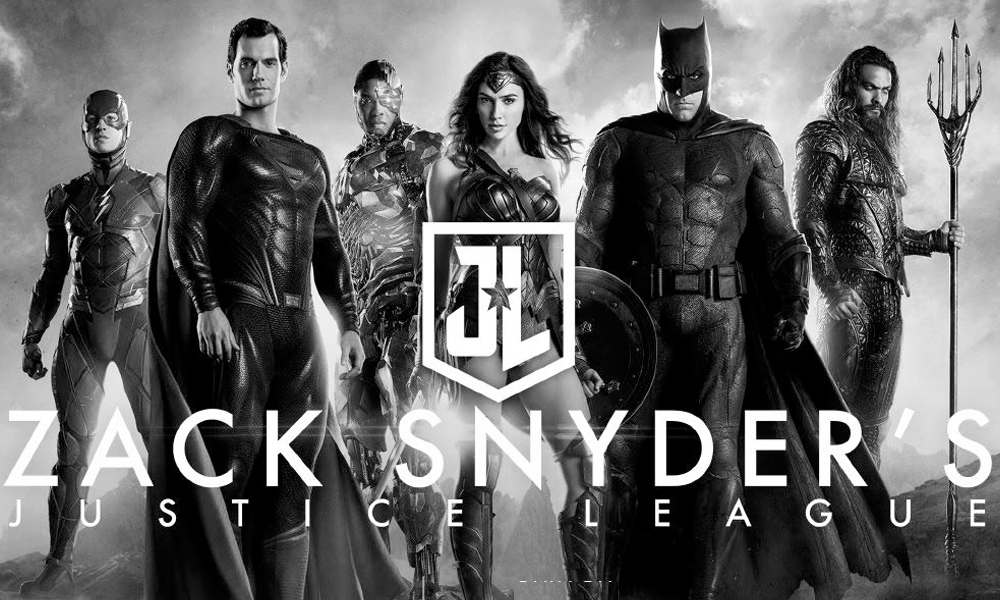
In the years following the release of Justice League, a fan campaign began to demand the release of Zack Snyder’s original cut of Justice League. The movement, known as the “#ReleasetheSnyderCut,” rapidly gained traction and momentum, leading to a massive push from fans on social media. The movement quickly evolved from just being rallies on social media: A plane was rented to tow a #ReleasetheSnyderCut banner over the WB lot; a billboard was rented in Times Square. Throughout the process, fans have also raised more than $600,000 for the American Foundation for Suicide Prevention, according to the charity.
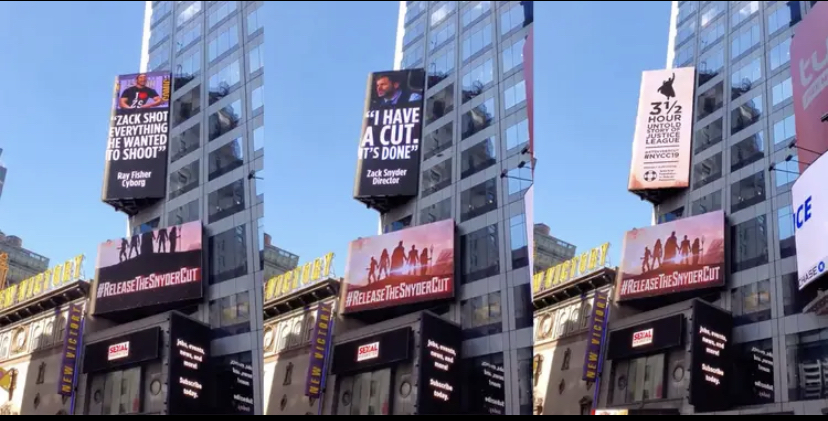
“The highlight for me is the money they were able to raise for suicide prevention. People’s lives have been saved by the money they raised. That’s just a fact.”
Zack Snyder on the fans contributions AFSP. Via The Wrap.
“Thank you to the #ReleasetheSnyderCut Movement for their dedication to raising awareness and funds for suicide prevention. We at the American Foundation for Suicide Prevention appreciate this remarkable community’s ongoing partnership and its commitment to sharing life-saving education through their network.
The #ReleasetheSnyderCut Movement has created a true community of support and their encouraging messages of hope will go a long way toward helping others know they are not alone. We are honored to be part of this movement and are grateful for all they are doing to save lives.”
Robert Gebbia, CEO of American Foundation for Suicide Prevention.
Finally, in May of 2020, Zack, along with WB, announced that Zack Snyder’s Justice League would be be released on HBO Max, finally allowing fans to see the near mythic Snyder Cut.
Snyder pegged the tipping point as November 17th, 2019, the second anniversary of the theatrical release, when fans got #ReleasetheSnyderCut to be the No. 1 trending topic in several countries on social media. Even Gadot and Affleck joined in the tweeting blitzkrieg.
Despite most industry insiders reporting the that the release of the director’s cut, and even its existence for that matter, were highly unlikely, the four hour cut of ZSJL was released on March 18th, 2021. ZSJL became the fourth-most-streamed film on the platform that year and was universally considered superior to the theatrical release. Critics and fans praised Snyder’s direction, visual style, action sequences, performances, improved characterizations, musical score, and balance of emotional weight and humor, although the runtime received some criticism.
Aside from the money raised for the AFSP, Snyder has often said he is most proud that his cut restores the longer origin story of Ray Fisher’s Cyborg. In Whedon’s version, the lone African American superhero on the team is basically reduced to a supporting character. The lack of screen time is certainly hard to ignore when combined with Fisher’s allegations of abusive behavior by Whedon during Justice League‘s reshoots.
While it appears that the release of ZSJL marked the official end of the SnyderVerse, it also solidified Snyder’s place in the history of DC movies. His vision for the DCEU may never be fully realized, but there remains no question that his work significantly impacted the franchise and fanbase more than anyone could’ve imagined back in 2013.
V. Epilogue
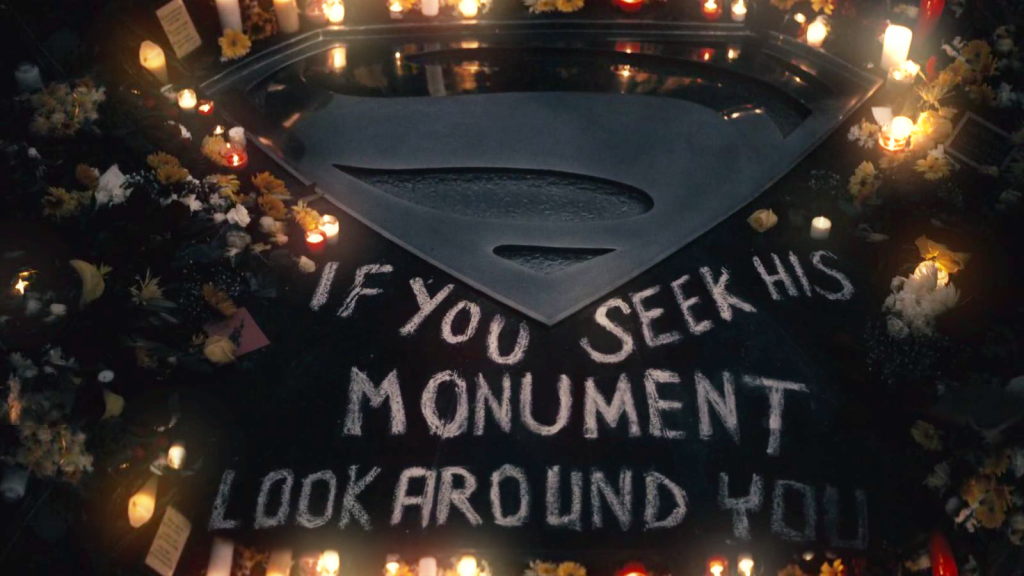
How do you form an epitaph for something you do not want to bid farewell to?
That’s the tough position not only myself, but nearly the entire fanbase, faces with the new era of the DCU on the horizon. Zack Snyder’s reputation as a visionary filmmaker who was not afraid to take risks and push the boundaries of what was expected from a comic book movie was apparent. His contribution to the DCEU was not limited to just his films. He was instrumental in attempting to create a larger shared universe and a tone / visual style that differentiated the franchise from its main competitors.
Zack’s films may not have been universally beloved, but they were a testament to his vision and commitment to his craft. Despite the mixed reception of his movies, Zack Snyder’s impact on DCEU cannot be overstated and will be forever felt. He paved the way for a new type of comic book movie that was dark, brooding, grounded, larger than life, and focused on character development. Snyder’s vision for DCEU may have been short-lived, but it still left a lasting impression on the franchise and will always be remembered as a defining moment in the genre’s history.
VI. A Cultured Farewell to The SnyderVerse

“In a time where the niche genre of superhero movies have become the norm in the world of cinema, the films that Zack Snyder created stood apart from the rest. His films brought a sense of gravitas and realism that I longed for in the genre. The complex deconstruction of DC characters challenge the viewer, which I greatly appreciate, and of course Zack’s stunning dynamic visuals are truly a sight to behold. We believed we could be something more than what society intended. We believed we could rebuild and be better. We believed we weren’t broken nor were we alone. Some find comfort in Middle Earth, others find it in galaxies far far away. My comfort lies in a world where men are still good. Thank you, Zack.”
Jon Stewart, Host of the The Cultured Nerd Rundown.
“It’s become a cliché to criticize Zack Snyder’s take on the DC characters as “too dark, gritty, or depressing.” That may be how it appears on the surface, but it wasn’t true of the substance of the material. The deconstructionism he brought to the characters made them meaningful. Here’s why: The world that most superheroes inhabit on the big screen is as fictional as the superpowered beings saving it. For instance, In Avengers Endgame, how did the heroes rescue the world from widespread famine and poverty resulting from collapsing supply chains, vanishing workforces, and economic crashes? Or the political turmoil from absent leaders, or the religious hysteria of the apparent rapture of half the world’s population disappearing? They didn’t because they never had to contend with any of those real-world consequences. Escapist entertainment can be fun for a time, but too often in this genre, realistic challenges and outcomes are conveniently omitted.
Zack Snyder decided to do something different and throw Superman into as real a representation of our world as he could imagine, forcing him to face the inevitable: the might of military jurisdictions, mass messiah worship, off-world racism and existential fear, media manipulation, and all the impossible expectations that us mortals would have for an all-powerful being. Only by letting today’s world break down these characters and rebuilding them piece by piece can we uncover the core that made them special in the first place. Otherwise, they are forever frozen in a malaise of nostalgia.
Such a narrative process isn’t cynical or nihilistic but quite the opposite. For if Superman is the symbolic embodiment of hope and he can sustain the messy gauntlet of our world, then by extension, so too can hope itself. Otherwise, hope is only shown to exist in a fantasy world, and what good is that once the popcorn is gone?”
Adam Birney, The Cultured Nerd Editor/Writer
“Zack Snyder’s Justice League trilogy brought a nuanced sense of realism and thoughtfulness that few mediums have in the past. This drew me in with Man of Steel, and kept my attention enraptured all the way through to ZSJL. The unique symbolism and deep sense of lore Snyder shows for the DC characters is wondrous and intriguing. His love for the characters, and his excellent casting choices have made this trilogy of movies one of my all time favourites. Thank you to Zack Snyder for creating such incredible and timeless interpretations of such iconic characters.”
Shaun Tyr-El, The Cultured Nerd Editor“A once in a generation masterpiece, that changed the way I viewed comic book films forever.”
Grant Ingram, The Cultured Nerd Contributor“A nuanced deconstruction of the superhero genre while also being a love letter to the world of DC and its characters.”
Michael Mellilo, Co-Creator of the Casual Experts“It’s hard sometimes to put my feelings of The SnyderVerse into words. I was there from the beginning, saw Man of Steel, BVS, Suicide Squad, Wonder Woman, and even Justice League in their midnight showings, but there’s always been more to it for me than just showing up.
I think back to my first viewing of Man of Steel. When I was a teenager I found out my dad wasnt actually my biological father and that he adopted me when I was a toddler. Looking back, I guess it happens to a lot of people… but for me it hit me harder than I could have possibly describe. My world was shattered. I had already felt different in my own home at times, but hearing that I had no blood connection to my own dad seemed to hit me in a way that sent me in a spiral. When my dad finally sat me down to talk to me about it, he told me plainly that it didn’t matter because he loved me. After a long talk I finally broke down crying and told him I just wish we could go back to the time before I knew, that I wish we could have just gone back to pretending I was his son and left it at that. He told me that I was his son, and that nothing would ever change that.
Years later, I was married.. with a stepson of my own. I sat in a theater and watched Man of Steel with my wife and son and then I saw a scene that hit me right to my core. Everything I experienced was right there on the screen. The feelings swelled up in me and I started to cry. Because of my relationship with my dad, I knew I could be a real dad to my step son.
Man of Steel hit me harder than I ever thought a superhero movie could.
Then when BVS happened, I saw one man turn to darkness after feeling helpless and another question everything he was doing due to the pressures and scrutiny of the world around him. And in the end of it I saw the heart of the broken man mend, and the other finding his purpose. “You are my world” is a phrase known all to well to any parent. It perfectly encapsulates the complete love and devotion that one can have for another, and to see Superman say it as his last words was beautiful.
There are so many things that make the Snyderverse memorable for me, but as always, it’s the little things that hit the hardest for me.”
Taylor Murphy, The Cultured Nerd’s Founder
Simply put .. thank you, Zack.
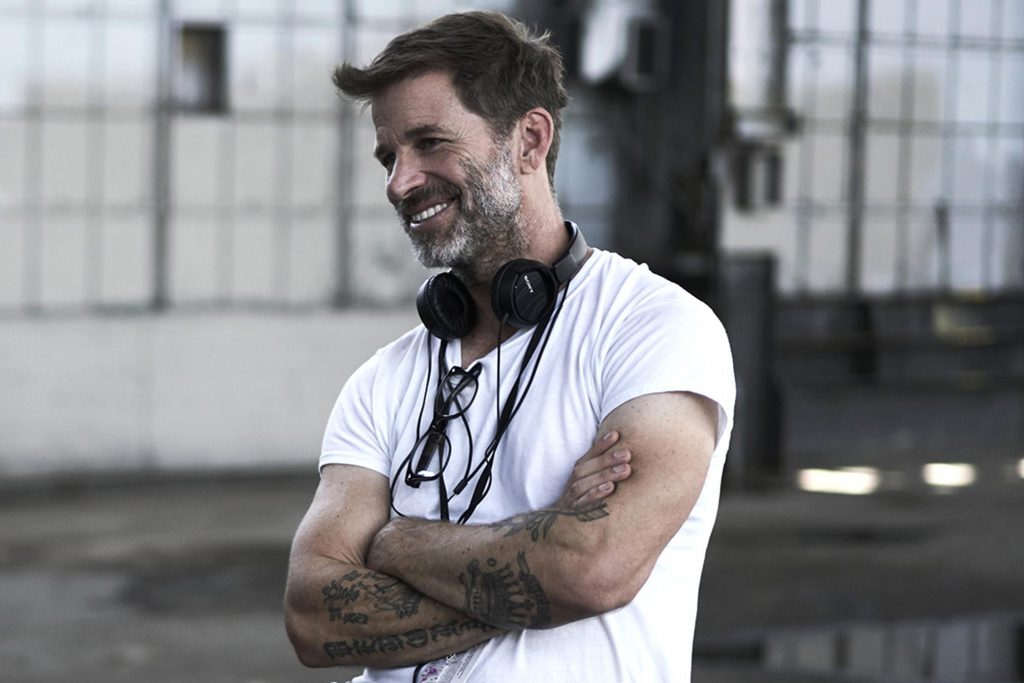
“The goal is not to live forever, but to create something that does.“
Autumn Snyder

